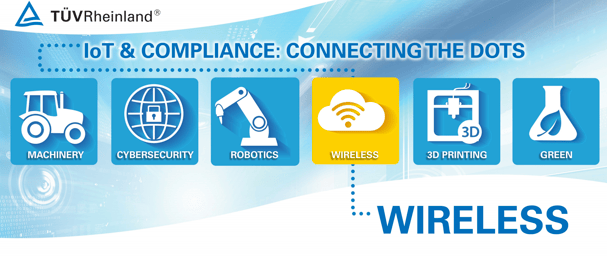The wireless industry is quickly evolving. Not only has the number of wireless devices increased dramatically, so has the need for connectivity solutions and IT services. In today’s SMART and connected world, manufacturers and service providers need to make sure they are covering all their bases when it comes to regulatory compliance.

What should companies be aware of?
With the advancements and evolution in the industrial space, there are a number of compliance issues companies must now consider. First, manufacturers need to address safety testing and assessments. These might include Machinery Directive, EMC Directive and other North American and European Standards.
Next, they need to have a solid understanding of how the integration of wireless modules works, and about the differences between using approved modules vs unapproved modules (FCC, CE, IC, Japan and Korea). And, of course, manufacturers must always consider the markets they wish to sell into. When going global, companies should consider MRA’s (Mutual Recognition Agreements) and Market Atomization.
TUV Rheinland offers solutions for a wide variety of technologies including: wireless networking (802.11x), standard wireless devices (remote controls), satellite communications, Bluetooth equipment / wireless phones and headphones, wireless medical devices, systems, wireless PDAs, PCs, notebooks, and RF identification. Ask us about your technology and how we can best support your needs
Are you a medical manufacturer?
TUV Rheinland has created the following two whitepapers to help our audience further understand wireless compliance concerns they must consider.
 Sarb Shelopal, Director of Wireless Globally
Sarb Shelopal, Director of Wireless Globally
Mr. Shelopal has over 15 years of experience in regulatory product testing and certification. He has held roles including Director, Electrical Services, Division Manager - Telecom, Operations Manager, and Director of the Competency Center for ICT. Mr. Shelopal is an active member in Thread, Wi-Sun, Open ADR, ZigBee and WiFi Alliance Group.




